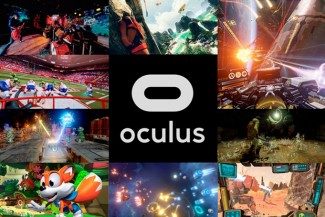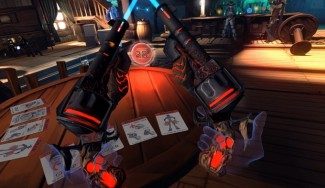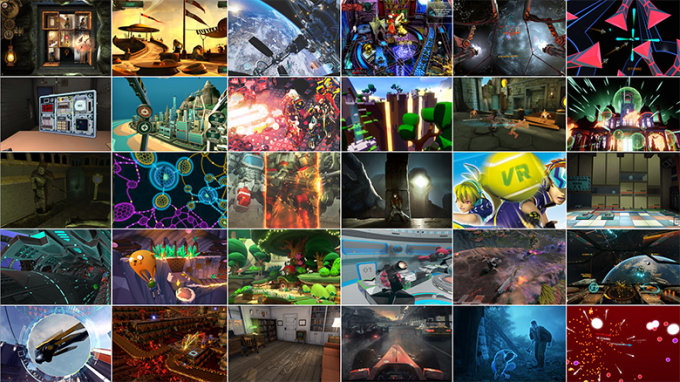The Oculus Rift will land in people’s homes from March 28th and there’ll soon be 1000s of people hunting for new content to play in virtual reality. Oculus is of course keenly aware of this, and Jason Rubin, Head of Oculus Studios, is leading the company’s assault on content. At Oculus’ pre GDC ‘Game Days’ event, he spoke to Road to VR‘s Ben Lang on the 30 strong launch line up, title exclusivity and Oculus Touch content timelines.

Jason Rubin is a video games industry veteran, if indeed that label isn’t understating things somewhat. Rubin has been involved in games production in one form or another for the last 3 decades. He founded Naughty Dog in the late 80s, a studio which gave rise to games such as Crash Bandicoot and, latterly, the Uncharted series of games on PlayStation. Rubin made the jump to the VR industry in 2014 when he joined Oculus to head up their content production arm Oculus Studios worldwide.
Rubin was of course at Oculus Game Days, held prior and parallel to GDC 2016, and was on hand to outline what the company’s strategy for content has been up to the Rift’s launch, in particular that there could be no launch without strong content support. Oculus announced that 30 titles will be available on day one of the Oculus Rift’s launch with more on the way. Ben Lang caught up with Rubin at Game Day on Sunday to find out a little more about Oculus Studios, what they’ve been up to and their plans for the next year in VR content.
On the tricky subject of Oculus exclusives, something that’s caused much debate in the community, Rubin elucidated on what he sees as the main types of development relationships Oculus is engaged with for the Rift. “Every game has it’s own relationship,” Rubin says, “One type of game, third party, Ubisoft or you have Project Cars … [they] worked on it on their own, their own money, their own production, they brought it to us at the end – that’s one type.” Ubisoft’s Eagle Flight is a good example of this model, present at Game Day. “You have our indie development fund, which is over ten million dollars. Those are games that are done by indies, 100% indies’ work, but they need a little help and we help them out with that,” so far so clear.

“Then you have my titles,” Rubin continues, “Oculus Studio titles and those are titles that wouldn’t have existed otherwise that are relatively large titles and we’ve gone to developers that are really interested in VR, who couldn’t fund [the games] themselves, for whatever reason wanted a producer, and we’ve gone and funded a lot of those titles, as I’ve said over 20 of them in 2016. Those titles, because of the amount of production we’ve put in, resources and of course cash, those titles we consider first party titles, even though they’re being done by external studios.” Those titles, games such as Dead and Buried, will remain Oculus and Rift exclusive upon release. However, Rubin was keen to emphasise that Oculus does not own the intellectual property to those titles and any sequels for example are free to adopt any VR platforms.
There were Oculus Touch titles on show at Game Day, the aforementioned Dead and Buried being one excellent example, but when will Oculus decide that Touch as hardware is ready for launch? “We will not launch it until we feel we have that quality volume of games that justifies a launch, we’re not launching a dev kit.”
Check out the full list of titles Oculus announced for the Rift’s launch yesterday, you can find a list of our coverage of some of those titles there too.







